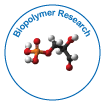మా గ్రూప్ ప్రతి సంవత్సరం USA, యూరప్ & ఆసియా అంతటా 3000+ గ్లోబల్ కాన్ఫరెన్స్ ఈవెంట్లను నిర్వహిస్తుంది మరియు 1000 కంటే ఎక్కువ సైంటిఫిక్ సొసైటీల మద్దతుతో 700+ ఓపెన్ యాక్సెస్ జర్నల్లను ప్రచురిస్తుంది , ఇందులో 50000 మంది ప్రముఖ వ్యక్తులు, ప్రఖ్యాత శాస్త్రవేత్తలు ఎడిటోరియల్ బోర్డ్ సభ్యులుగా ఉన్నారు.
ఎక్కువ మంది పాఠకులు మరియు అనులేఖనాలను పొందే ఓపెన్ యాక్సెస్ జర్నల్స్
700 జర్నల్స్ మరియు 15,000,000 రీడర్లు ప్రతి జర్నల్ 25,000+ రీడర్లను పొందుతున్నారు
ఇండెక్స్ చేయబడింది
- పబ్లోన్స్
ఉపయోగకరమైన లింకులు
యాక్సెస్ జర్నల్స్ తెరవండి
ఈ పేజీని భాగస్వామ్యం చేయండి
నైరూప్య
The Effectiveness of VEGF Signalling Pathway Inhibitors on the Kidney and Their Immunoregulation Mechanism
Betty Andrews
Pathophysiologic processes that are closely related are angiogenesis and immunosuppression. VEGF signaling pathway inhibitors, which are frequently prescribed for proliferative retinal lesions and malignant tumors, can induce hypertension and renal damage in certain patients. These patients may present with proteinuria, nephrotic syndrome, renal failure, and thrombotic microangiopathy. VEGF-A and VEGF-C are both inhibited by VEGF signaling pathway inhibitors. Nonetheless, glomerular endothelial cells’ and podocytes’ physiological function depends on the VEGF-A and VEGF-C that podocytes produce. For kidney disease linked to inhibitors of the VEGF signaling pathway, there is currently no proven treatment, and some patients continue to experience progressive renal failure even after stopping their medication. According to recent research, VEGF-A and VEGF-C blocking can increase cytotoxicity of CD4 + and CD8 + T cells, strengthen dendritic cells’ ability to present antigens, and activate CD4 + and CD8+ T cells.
సబ్జెక్ట్ వారీగా జర్నల్స్
- ఆహారం & పోషకాహారం
- ఇంజనీరింగ్
- ఇన్ఫర్మేటిక్స్
- ఇమ్యునాలజీ & మైక్రోబయాలజీ
- ఎకనామిక్స్ & అకౌంటింగ్
- కంప్యూటర్ సైన్స్
- కెమికల్ ఇంజనీరింగ్
- క్లినికల్ సైన్సెస్
- గణితం
- జనరల్ సైన్స్
- జియాలజీ & ఎర్త్ సైన్స్
- జెనెటిక్స్ & మాలిక్యులర్ బయాలజీ
- నర్సింగ్ & హెల్త్ కేర్
- పర్యావరణ శాస్త్రాలు
- ఫార్మాస్యూటికల్ సైన్సెస్
- బయోకెమిస్ట్రీ
- బయోమెడికల్ సైన్సెస్
- భౌతిక శాస్త్రం
- మెటీరియల్స్ సైన్స్
- మెడికల్ సైన్సెస్
- రసాయన శాస్త్రం
- వెటర్నరీ సైన్సెస్
- వ్యాపార నిర్వహణ
- సామాజిక & రాజకీయ శాస్త్రాలు
క్లినికల్ & మెడికల్ జర్నల్స్
- అంటు వ్యాధులు
- అణు జీవశాస్త్రం
- అనస్థీషియాలజీ
- ఆరోగ్య సంరక్షణ
- ఆర్థోపెడిక్స్
- కార్డియాలజీ
- క్లినికల్ రీసెర్చ్
- గ్యాస్ట్రోఎంటరాలజీ
- జన్యుశాస్త్రం
- టాక్సికాలజీ
- డెంటిస్ట్రీ
- డెర్మటాలజీ
- నర్సింగ్
- నెఫ్రాలజీ
- నేత్ర వైద్యం
- నేత్ర వైద్యం
- న్యూరాలజీ
- పల్మోనాలజీ
- పీడియాట్రిక్స్
- పునరుత్పత్తి ఔషధం
- ఫిజికల్ థెరపీ & పునరావాసం
- మందు
- మధుమేహం & ఎండోక్రినాలజీ
- మనోరోగచికిత్స
- మైక్రోబయాలజీ
- రేడియాలజీ
- రోగనిరోధక శాస్త్రం
- సర్జరీ
- హెమటాలజీ

 English
English  Spanish
Spanish  Chinese
Chinese  Russian
Russian  German
German  French
French  Japanese
Japanese  Portuguese
Portuguese  Hindi
Hindi